Many White allies find it problematic when they are excluded from private Black meetings. In fact, when Black people want to have a private “Black people only” meeting, you can expect to hear accusations of reverse racism.
I saw this most recently in the days leading up to the #Movement4BlackLives Convening in Ohio (#M4BL). The convening was only open to Black people and it recognized that Black people needed a private space:
“…to begin the creation of a collective mission that matches the intensity, scale, urgency, and promise of the moment. This convening presents an opportunity for us to reflect on our histories of struggle, build a sense of fellowship that transcends geographical boundaries and begin to heal from the many traumas we face…”
That last line “begin to heal from the many traumas we face…” is particularly important given the history that created the racial turmoil we have today. It’s even more crucial when you know how Black and White people, were taught to behave around each other during slavery, colonization and Jim Crow.
Because one of the major things Black people need to heal from, is the way White supremacy makes many of us act (and think) when we’re around White people.
Programmed to Serve
Slavery/colonization/Jim Crow were race-based systems supported by two central beliefs:
- White people, by virtue of their whiteness, have a God given right to dominate the earth and to rule over non White people (and the land they lived on); and
- Black people, by virtue of their Blackness are divinely ordained to be a permanent slave class whose central role was to serve White people. To make them comfortable.
These beliefs were promoted both by Whites who owned slaves and those who did not (but who benefited from the privileges that living in a race-based slave society gave them). Enslaved Africans were forced to learn and teach their children to embrace these ways of thinking—or risk triggering the ever-present threat of racial terrorism.
Because failure to uphold these beliefs could result in torture the likes of which they’d never seen. Failing to consistently and enthusiastically defer to White people’s self proclaimed right to be comfortable could lead to the spontaneous sale of one’s children, closest family and friends.
It could—and still does—lead to death. Just ask Sandra Bland. Or Mike Brown. Or Rekia Boyd. Or Trayvon Martin…
Black Slavery = No Private Spaces
White people stayed worried that if Black people were able to have private meetings, that we would use that time to plot slave rebellions or freedom plans that would interfere with their right to enjoy White privilege. So most states in the North and South implemented rules (often referred to as Black Codes) that prohibited groups of more than 3 Black people gathering without a White person present.
Whites were so freaked out about the things Blacks discussed when Whites weren’t present that they passed laws requiring Black churches to have their sermons approved by trusted White people. In many states a White person had to be present during Black church services so that Black pastors God didn’t encourage enslaved Black people to fight for freedom.
Making White people comfortable was enforced through strict laws and the use of wanton, extreme violence against Black people. Those laws and excessive use of force worked so well that even White babies who nursed on Black breasts and were raised by Black women, became adults who inherited their enslaved Black nannies as part of their family’s estate.
And proceeded to rule over them accordingly.
Black babies born into slavery never knew anything except a life defined by the ever present need to make White people comfortable enough—pleased enough—with their behavior, that they could live to fight another day.
The Past is Now
These relationship dynamics are still present in all of our interracial interactions. We are all historical products. Who we are today is largely the result of the choices made by people yesterday. The society we have today is still organized to support the pillars of Whiteness put in place yesterday.
We know that for most of us, our survival depends on our ability to make White people feel comfortable. Even at work our ability to advance, get a raise, and possibly even get a crack at coveted leadership position are largely based on how comfortable we can make our White colleagues.
This often means avoiding uncomfortable topics like race in mixed company. Even if that mixed company is comprised of allies who want to deal with race. When we do discuss these issues, many Black people find themselves framing them in ways that “make White people understand.” But honest conversations about race make White people uncomfortable. Which is a violation of rule number one.
Which usually means we censor ourselves, hold back, don’t say what we really think and feel in the way we really think and feel it. At the very least, many try to avoid sounding like angry Black people so we put a lot of emphasis on forgiveness.
We often clamp down our emotions in front of White people, while privately acknowledging that if we really wrestled with racism and its impact on our lives, the entire vibration, tone and tenor of the discussion would be different.
Because of this learned behavior it’s nearly impossible for most Black people to openly and honestly address issues of race in mixed company. So we must create private, safe spaces for ourselves to deal with the way slavery and racism impact us today. Otherwise we can never be honest or vulnerable enough to heal.
Abuser Dynamics
If we don’t create space away from our abuser we can’t get the breathing room we need to figure some things out.
For example, groups designed for survivors of domestic abuse typically exclude domestic abusers. Not because excluding abusers is the goal—but because the goals are centered on the needs of survivors and creating safe spaces for them to heal.
Private Black spaces are not about excluding White people; rather they are about creating safe spaces for Black people.
And unless you’ve been under a rock for the past 500 years – We got a lot of things to figure out. Like how do we protect ourselves from a society that relishes in continuing to see us as slaves—and treat us as such? How do we flourish and heal from the negative ways that internalized White supremacy taught us to feel about being Black?
We can’t do any of that when Becky and Jim are in the room.
Because once they are in the room, the power dynamic changes–regardless of Becky and Jim’s intentions. We often get uncomfortable discussing the continuing impact of slavery in mixed company because of the shame we were taught to feel about it. We often center the issues on colorblind approaches to racial healing so Becky and Jim aren’t uncomfortable with their historic role as oppressors. We often bend over backwards to tell them they should be “proud” for dealing with race.
We usually leave those spaces having done little more than dance around the edges of issues. All to make Becky and Jim feel comfortable. The way our ancestors were taught to do.
Membership Has its Privileges
I have Asian friends who invite me to cultural events. But there are some meetings within the Asian community I can’t attend. For example, when Asian beauty store owners discuss how to take over Black hair markets, they don’t invite Black hair industry members (even if their own bestie is Black). Why? Because they’re meeting to benefit Asian Beauty Store owners. Not the Black clients they’ll make millions from. Also? I am not Asian.
My Jewish friends invite me to Jewish cultural events. But there are a lot of Jewish community or religious meetings I can’t attend. Those meetings are not planned with my needs in mind. They aren’t advertised in my community and if I were to stumble into one, I’d be summarily kicked out. Because I am not Jewish.
My White friends are cool and we hang at cool events. But there are many meetings I can’t attend, jobs I can’t get and neighborhoods I can’t live within the White community. Because I am not White.
These private meetings—where only members can attend—are not planned with my needs in mind. My issues as a non-Asian, non-Jew or non-White person, don’t make the agenda. In fact, I don’t even know when these meetings are happening, because they weren’t intended for me.
What the children of slaves often forget is that meeting in private is something healthy communities do. That’s how they plan how to take over neighborhoods, or to change policies that impact them. Private meetings are how businesses figure out how to create financial streams of income for their people. Private meetings are how parents in certain groups figure out how to pressure schools to meet their kids’ specific needs. Private meetings are how people learn to address internal issues that they need to resolve.
So the next time Black people dealing with Black issues want to have a private space to do so, let’s close the door and do what we have to do for our own safety. Since we know that we’ve been trained to think of White needs first, when we start to feel that historical discomfort (aka slave guilt) about excluding non-Black people, lets remind ourselves that focusing on meeting White needs over our own Black lives was a survival skill we learned during slavery.
But we ain’t settling for slavery no more. It’s time we learned a new set of skills—ones that are designed to meet our needs first. Just like every other healthy community does.
So go ahead. Plan your private Black meeting spaces. Our community needs them. Everywhere and everyday.
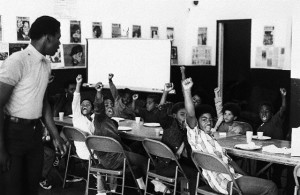
20 Dec 1969, San Francisco, California, USA — A teacher leads his students with the black power salute and slogans at a Black Panther liberation school. — Image by © Bettmann/CORBIS
********
Looking for more thoughts from an Afro State of Mind? Check out my book Afro State of Mind: Memories of a Nappy Headed Black Girl now available on Amazon.com in paper back or available here for e-book download! And if you want to stay connected follow me on Twitter, or Instagram “like” Afro State of Mind on Facebook or catch up on my latest Youtube videos!
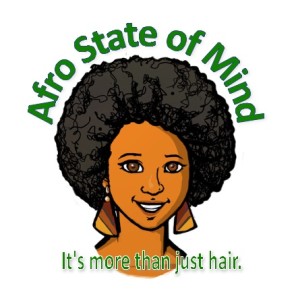
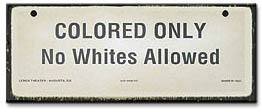
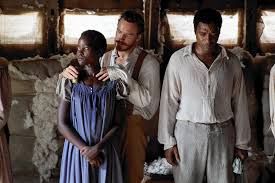
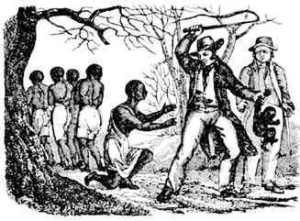
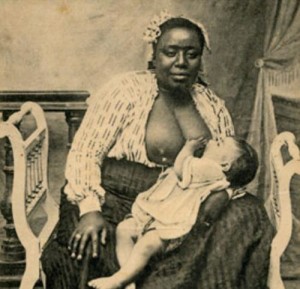

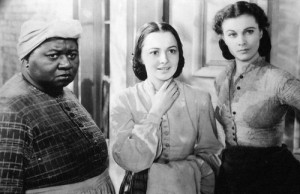
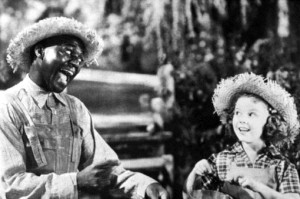

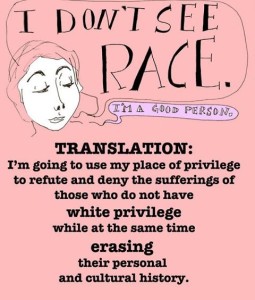
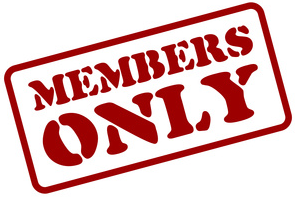


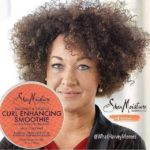
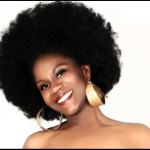
Rather, they would certainly gather your PMI costs on a
monthly basis for the whole 30 years if you let them.
Thank you for this.
Mvumikazi | Urban Mnguni